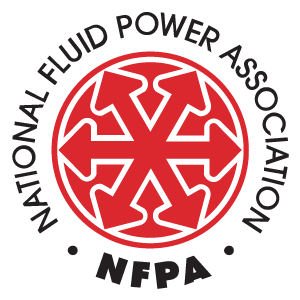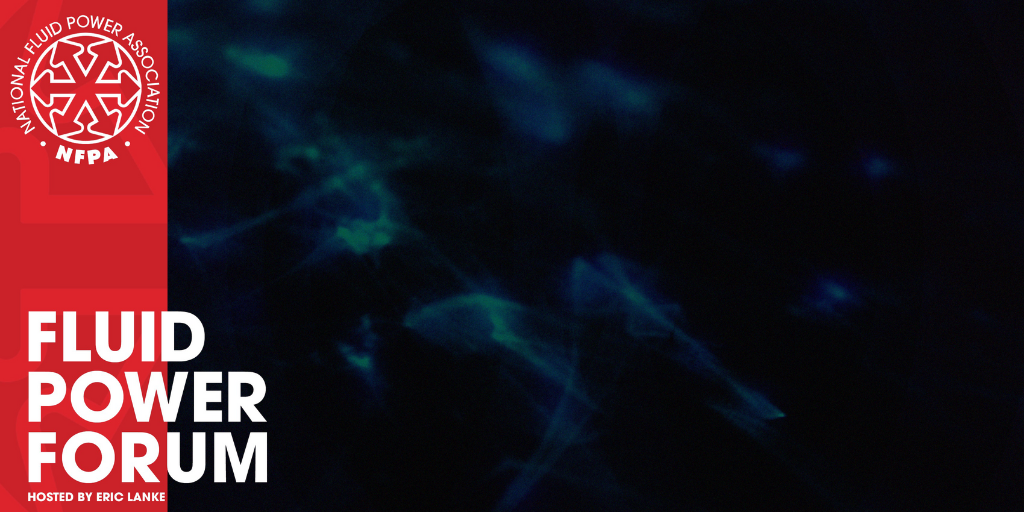By Eric Lanke
NFPA President/CEO
I recently attended the June 2019 Summit of the Center for Compact and Efficient Fluid Power (CCEFP) at Purdue University. This was the second of two meetings in our last fiscal year where the fluid power research projects supported by our new NFPA Research Supplement Program were presented.
In our efforts to increase the number of university students educated in fluid power, the NFPA Education and Technology Foundation provided ten $10,000 research supplements to ten academic faculty members working on fluid power research at six universities. This helps to engage current and build the careers of future university faculty who are and will be in a position to teach fluid power to undergraduate engineers on their campuses. The research supplements provide travel support so that each faculty member and one of their graduate students can attend to present their research at designated industry conferences and research summits like the one hosted by the CCEFP.
One such faculty member is Professor Zongxuan Sun of the University of Minnesota, whose graduate student, Abhinav Tripathi, presented on their project, “Modeling and Optimization of Trajectory-Based HCCI Combustion,” at the CCEFP Summit. The goal here, as I understand it, is to accurately predict and control the combustion cycle on the CCEFP’s Free-Piston Engine/Pump so that fuel efficiency can be increased and harmful emissions can be reduced.
Working with funding provided by the National Science Foundation, Tripathi and the team have developed a dynamic model to systemically investigate the effectiveness of the proposed combustion control. Within that model, they have used an electro-hydraulic actuator to drive the piston inside the combustion chamber, maintaining controlled piston trajectory even at high pressure and temperature. They can also dynamically change the shape of the piston motion profile, which enables better combustion of the fuel. They are now looking for real-world applications on which to test the device.
A copy of Tripathi’s presentation slides can be accessed here.
Collectively, the research projects supported by NFPA Research Supplements represent more than $4.9 million in funding from a variety of organizations, including the U.S. Department of Energy, the National Science Foundation, and the Center for Compact and Efficient Fluid Power (CCEFP). They are an excellent sample of the growing body of fluid power research being funded by the federal government and other research organizations.
Like this post? Share it!
Recent Posts
Update to Regional Demand Estimates Report Now Available
The U.S. Fluid Power Regional Demand Estimates Report has been updated with 2023 estimates and is now available for download. This Excel-based report is prepared for NFPA by Oxford Economics and profiles the geographic distribution of fluid power products to end-use industries by state, including fluid power sales dollars, fluid power sales percentage, and number of…
Hear from an NCAT Student Engaged in NFPA Workforce Programs
We’re excited to share a new testimonial video from David Castro Lastor, a junior mechanical engineering student at North Carolina Agricultural and Technical State University and president of the university’s Fluid Power Club. In his video, David shares how participating in NFPA programs has shaped his academic and personal growth. Through his leadership in the…
New Episode of Fluid Power Forum: Advanced Modeling Techniques and Performance Comparisons of Electrohydraulic Systems
Today, our guest is Bruno Dupuis. Bruno is a Corporate Accounts Manager at Famic Technologies Inc., the company behind the development of Automation Studio™, a circuit design and simulation software for fluid power, electrical, robotics, process control and automation projects. He presented at NFPA’s Hydraulics Conference co-located at the 2024 iVT EXPO back in August.…




